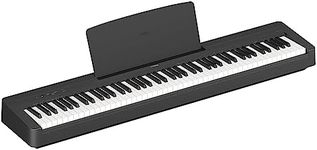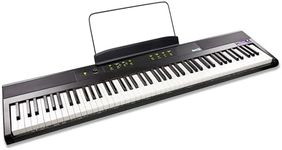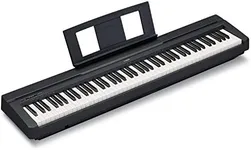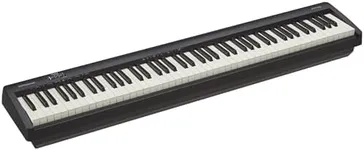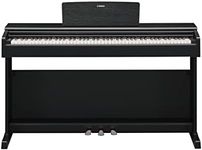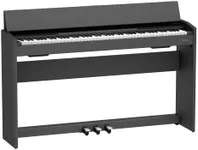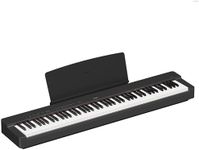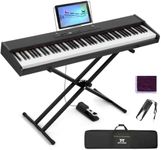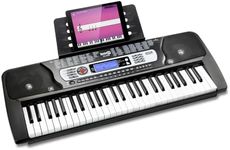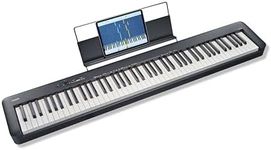Buying Guide for the Best Digital Piano Keyboards
Choosing the right digital piano keyboard can be a rewarding experience, especially if you know what to look for. Whether you're a beginner or an experienced player, the right keyboard can enhance your playing experience and help you grow as a musician. It's important to consider your skill level, the type of music you want to play, and where you'll be using the keyboard. By understanding the key specifications, you can make an informed decision that suits your needs and preferences.Number of KeysThe number of keys on a digital piano keyboard is crucial as it determines the range of notes you can play. Most full-sized keyboards have 88 keys, which is the standard for classical music and offers the full range of a traditional piano. However, there are keyboards with 61 or 76 keys, which are more compact and suitable for beginners or those with limited space. If you're planning to play complex pieces or classical music, an 88-key keyboard is ideal. For casual playing or learning, fewer keys might suffice.
Weighted KeysWeighted keys mimic the feel of an acoustic piano, providing resistance when pressed. This feature is important for developing finger strength and technique. Keyboards can have fully weighted, semi-weighted, or non-weighted keys. Fully weighted keys offer the closest feel to a real piano, making them suitable for serious pianists. Semi-weighted keys provide some resistance but are lighter, which might be preferable for beginners or those who play casually. Non-weighted keys are easier to press and are often found in entry-level keyboards.
Sound QualitySound quality is determined by the samples used in the keyboard and the technology behind them. High-quality sound samples provide a more realistic and enjoyable playing experience. Look for keyboards with advanced sound engines and multiple sound options, including different piano tones and other instruments. If you're performing or recording, superior sound quality is essential. For practice and casual playing, a decent sound quality that fits your budget might be sufficient.
PolyphonyPolyphony refers to the number of notes a keyboard can produce at once. Higher polyphony allows for more complex and layered sounds, which is important for advanced pieces and compositions. Keyboards typically offer polyphony ranging from 32 to 256 notes. If you plan to play intricate music or use the sustain pedal frequently, higher polyphony is beneficial. For simpler tunes or beginner practice, lower polyphony might be adequate.
Connectivity OptionsConnectivity options such as MIDI, USB, and audio outputs allow you to connect your keyboard to computers, recording equipment, or other devices. This is important for those who want to record music, use music software, or perform live. If you're interested in music production or digital integration, look for keyboards with comprehensive connectivity options. For basic practice, fewer connectivity features might be needed.
PortabilityPortability is a key consideration if you plan to move your keyboard frequently or have limited space. Lightweight and compact keyboards are easier to transport and store. Consider the weight and size of the keyboard, especially if you need to carry it to lessons or gigs. If portability is a priority, look for models designed for easy transport. For home use, a larger, more robust keyboard might be preferable.
